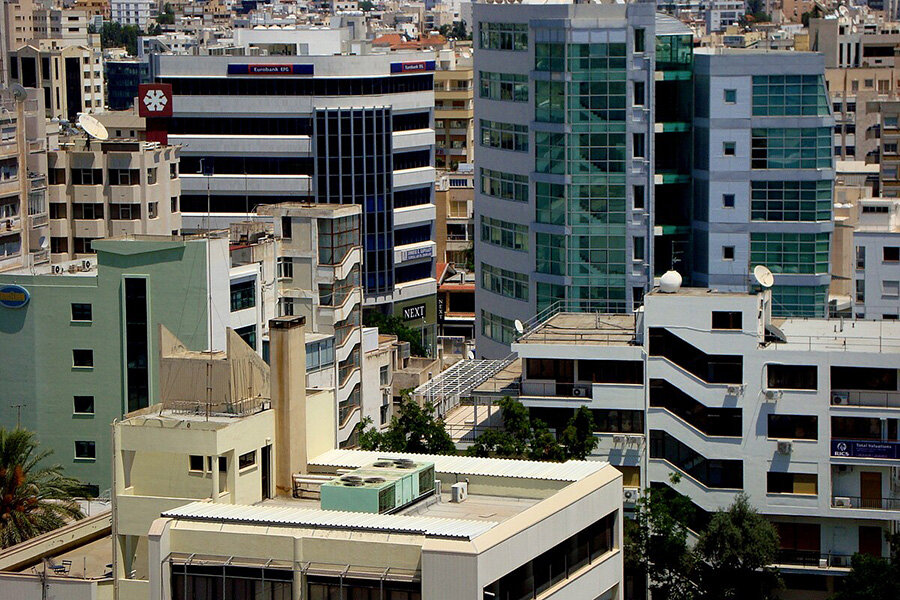Cyprus Housing Sales: March Records and Upcoming Restrictions

The real estate market in Cyprus began 2025 with a noticeable increase in activity. According to Cyprus Property Buyers, March was the most successful month in the last 17 years in terms of the number of transactions. However, experts warn that many risks remain, driven not only by the war in Ukraine but also by potential Trump-era trade tariffs.
March Transactions
In March 2025, the number of property transactions in Cyprus increased by 19% year-over-year, reaching 1,491—marking the highest figure since 2008. All five districts posted positive growth. The biggest surges were observed in Paphos (+32%), Larnaca (+21%), Nicosia (+18%), Famagusta (+15%), and Limassol (+11%). Despite more moderate growth, Limassol led in transaction volume with 477 deals.
The domestic market saw a 14% increase. Famagusta posted the highest rise at +27%, followed by Nicosia (+26%), and Paphos (+20%). Larnaca and Limassol rose by 7% and 6%, respectively. Foreign buyers closed 25% more deals than in March 2024. Paphos once again led with 204 transactions (+38%), followed by Limassol (172), Larnaca (152), Nicosia (54), and Famagusta (25).
Interest among EU citizens grew by 16%. Notable increases were seen in Larnaca (+65%) and Paphos (+60%), while Nicosia and Famagusta experienced declines of 36% and 27%, respectively. Buyers from third countries showed a 30% overall increase, with the strongest performance in Famagusta (+40%) and Larnaca (+34%).
In Q1 2025, total transaction volume rose by 15% compared to the same period last year. The domestic market showed identical growth, with the most active regions being Larnaca (+29%), Limassol (+17%), and Nicosia (+16%).
Among foreign buyers, a similar 15% rise was recorded. Larnaca saw a 22% increase, Paphos +16%, and Limassol +14%. EU citizen purchases grew by 29%, with top surges in Paphos (+55%) and Famagusta (+49%). Third-country buyers increased by 10%, despite a 21% drop in Famagusta.
Weak Results in 2024
According to the Department of Lands and Surveys, Cyprus ended 2024 with minimal real estate growth. A total of 15,567 transactions were recorded—just 1% higher than in 2023. The domestic market grew by 10%, with nearly all districts showing growth except Famagusta (–16%). The foreign segment, however, declined. Sales involving international buyers fell by 10%, with notable drops in Limassol (–23%) and Paphos (–14%). Meanwhile, deals increased in Nicosia (+19%), Famagusta (+13%), and Larnaca (+4%).
Analysts attributed these trends to inflation, higher construction costs, and pending legislative changes. Stricter policies targeting Russian nationals—formerly a significant market force—also played a role. Cypriot banks began closing Russian accounts, and sanctions-related investigations drove many Russian companies off the island. Additionally, the government’s campaign to revoke “golden passports” for foreigners reduced investor appeal.
Outlook
In 2025, the market has rebounded, driven in part by foreign interest from countries other than Russia. However, experts warn that external risks remain. U.S. trade tariffs could pressure the eurozone economy, thereby affecting investment flows into Cyprus. Inflation, especially tied to pricier imported construction materials, is another concern.
The European Central Bank’s monetary policy may also impact mortgage affordability, particularly if interest rates rise. Plans to cancel reduced VAT rates are another red flag for prospective buyers. The standard VAT rate in Cyprus is 19%, but eligible buyers can pay just 5% for a primary residence—provided it is not rented out. Due to widespread rule-breaking, the AKEL party proposed a bill to eliminate the reduced rate for foreign buyers constructing or acquiring homes in Cyprus. The bill cites unfair advantage and misuse of benefits as reasons.
In addition, the Cyprus Real Estate Agents Council recommended banning short-term rentals to protect consumer rights and stabilize the market. Deputy Tourism Minister Kostas Koumis reported that in April 2023, Cyprus had 4,765 legal rental units. By 2025, this had surged to 8,248, offering 36,640 beds. Yet the actual number of such units is estimated at 80,000–90,000, meaning only around 30% are officially registered. The licensed hotel sector offers roughly 90,000 rooms, built over half a century—now facing stiff competition from short-term rentals that grew to comparable levels in just ten years.
If current macroeconomic conditions and investor interest persist, 2025 could be a record-breaking year for transactions. However, outcomes will largely depend on the evolving political and economic landscape, which remains complex.








